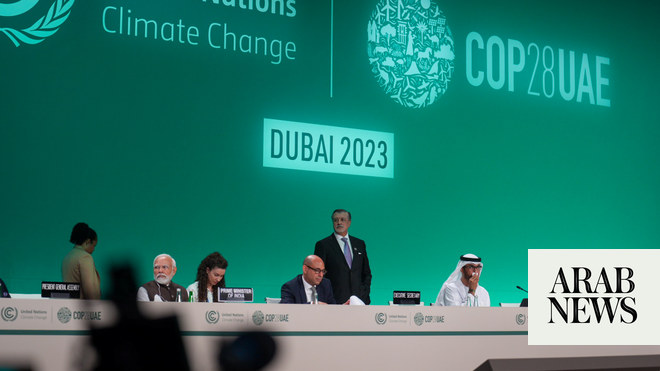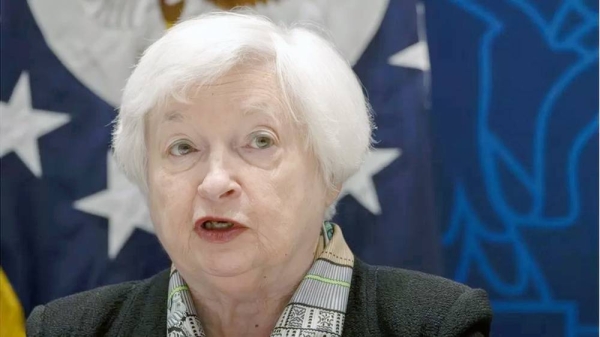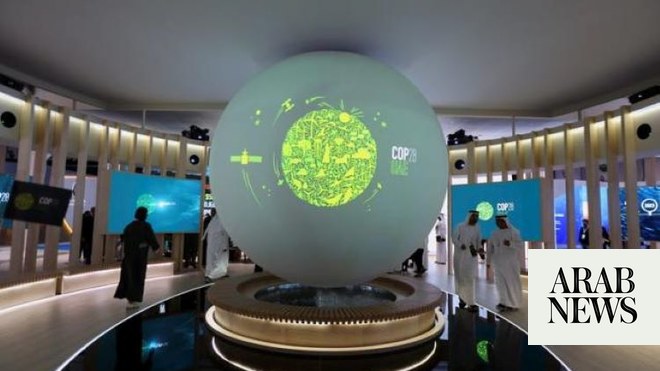
More than a billion people in nearly 200 countries marked the 51st Earth Day last week, coinciding with a world leaders’ summit on climate hosted by the White House. The stakes could not be higher, and the threats posed by a rapidly warming planet more evident.
Unlike the rest of the world, where there is a palpable sense of urgency and shared resolve on cooperating to mitigate the effects of a warming planet, the Middle East’s legacy of conflict will cast a long shadow over any attempts to address climate-related priorities. Already, the region’s ability to cope with global threats is severely diminished, not helped by the physical destruc- tion of critical infrastructure due to conflict, loss of biodiversity, dwindling water resources and large public sectors and standing armies constituting an enormous drain on already limited public finances. Unprecedented heatwaves, increasing desertification and falling water tables are contributing to the rapid deterioration of the region’s less endowed environmental conditions. However, a warming planet is as much a security threat as it is a potential cause for the myriad humanitarian disasters unique to the region.
In addition to fact that climate changes will undoubtedly increase the global urge to move away from fossil energy sources such as oil, which is the backbone of the region’s economy, there are a number of other issues.
First, increasing water scarcity in an already arid region will only spark fresh conflicts and competition, which could undo existing settlements, further complicate conflict resolution and contribute to greater instability.
Second, dwindling water resources will affect domestic agricultural productivity, increasing the volatility of global food prices and supplies, which will only politicize food security in an already vulnerable region. Food price inflation will also compound social instability, particularly in countries that lack the fiscal room for increasingly expensive food imports.
... the existing landscape is far too hostile, mistrustful and loath to cooperate, especially to tackle the still nebulous challenge that is climate change. Regardless, Arab world governments, civil societies and the global community must still act to combat climate change, adapt to its increasingly visible effects and better manage essential resources via greater regional cooperation.
Hafed Al-Ghwell
Third, the effects of climate change will negatively affect sustainable economic growth in Arab countries, especially in those that will have to cope with reduced productivity in the largest hiring sector — agriculture. When combined with already high unemployment — especially among youths — reduced tax revenues as economies shrink, and a sharp increase in demand on social safety nets, governments will find it increasingly challenging to address mounting domestic woes and accelerating social breakdown.
Where societies are increasingly inundated and with governments unable to cope, the result is the forced migration of, first, rural populations to urban areas, and eventually, irregular cross-border migration to wealthier or middle-income states. After all, reduced agricultural productivity directly affects rural livelihoods and diminishes rural employment prospects. This internal migration also puts pressure on state capacities already under strain from hosting conflict refugees, which will only exacerbate tensions and resentment toward vulnerable populations.
Finally, as water resources and arable lands shrink, perceptions of dwindling necessities will only lead to an increase in the militariza- tion of strategic resources. In fact, control over these resources will not only be an imperative national security objective but also an additional dynamic in geopolitical competition or regional competition. This will create a dilemma for governments, forcing them to choose between increased militarization at the expense of public service delivery or the potential loss of control of scarce strategic resources to hostile external interests.
Fortunately, there is still some time and opportunities, however small, for Middle East governments and societies to act more aggressively in the face of the evolving impact and threat posed by runaway climate change. As knowledge and understanding evolve and deepen, there is some possibility that the shared threat posed by a warming planet will go a long way toward encouraging the Arab world to collaborate and cooperate across its myriad ideological and political divides. After all, without major whole-of-society and whole-of-government interventions and reforms, human habitability of the region will deteriorate, potentially turning the region’s nearly 750 million inhabitants into climate refugees by 2050.
Successful climate cooperation could also be an avenue for rapprochement and permanent settlement of the region’s most intractable conflicts. Unfortunately, the existing landscape is far too hostile, mistrustful and loath to cooperate, especially to tackle the still nebulous challenge that is climate change. Regardless, Arab world governments, civil societies and the global community must still act to combat climate change, adapt to its increasingly visible effects and better manage essential resources via greater regional cooperation.
Ultimately, the daunting challenges posed by climate change are far too great for any one country or region to tackle. Thus, the shared consequences and threats, security-related or otherwise, should incentivize cooperation over competition from cutting emissions to contributing and committing to multilateral strategies to combat as well as adapt to climate change.
• Hafed Al-Ghwell is a senior fellow with the Foreign Policy institute at the john hopkins university school of Advanced international studies. Twitter: @HafedalGhwell
Disclaimer: Views expressed by writers in this section are their own and do not necessarily reflect Arab News" point-of-view












